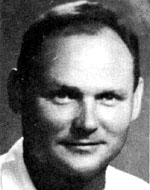Margalit, David (“Dudek”)
Son of Moshe and Sarah. He was born on April 17, 1924 in Radom, Poland. Grew up within an affluent Zionist family in a home that gave her son a national education. He attended elementary and high school and belonged to the Akiva Zionist youth movement. By the time World War II broke out, David did not experience any suffering and was not shocked, but in 1939 the Germans came and confiscated his father’s business and a ghetto was set up in Radom, where David, along with all the other Jews in Poland, suffered all kinds of trouble. In 1941 he joined the ranks of partisans who fought in the vicinity of Radom. In 1942 the “aktion” and his parents were sent to Auschwitz and David and his sister remained in the ghetto alone. After receiving forged documents from Polish subjects, David and his sister managed to escape through Slovakia to Hungary (for in the meantime the Germans learned of his underground activities); Here David managed to smuggle his bride. Thanks to the sight of Harry, David was accepted as a Christian refugee in Budapest and began to work as the Hungarian Minister of Agriculture, thereby enabling him to organize smuggling operations to rescue Jews within the Hungarian underground. Upon the occupation of Hungary by the Germans, David was active in transporting Jewish refugees from Hungary to Romania, until he was caught by the army and arrested. But he managed to escape from prison and with the help of one of the Righteous Among the Nations (whom David had much to tell in his memoirs), he continued the rescue operations. With the Russian occupation, David moved to Romania where he served as a counselor in a Zionist youth movement. Finally, in October 1945, he arrived in Israel with his wife on the ship “Transylvania.” They joined together to Kibbutz Tel Yitzhak, and after eight they moved to Bat Yam, where they lived until the day they fell. Upon his arrival, he immediately joined the ranks of the Haganah and participated in the War of Independence, out of devotion and concern and full fulfillment of all his duties. He was one of the first recruits in the War of Independence and was always active and ready for any mission. He never complained of difficulty or lack. With the conquest of Jaffa, the company set out on the road to Jerusalem and fought for Latrun and the Jerusalem corridor. The war ended and David returned to civilian life, got along as a member of Egged and knew peaceful family life. In 1956 he participated in a Chinese system with the rank of captain, but since the security affairs were close to his Lev he would go out as a reserve officer and be assigned to the armored infantry battalion with the rank of major and served as deputy battalion commander. He was always on vacation, because he loved the country he dreamed of in all his jolts and hardships, and he enjoyed guiding travelers and tourists on trips, especially high school students across the country, and lecturing them about places and sites. , As was his wont in the past, one of the first recruits, and on the first day of her battles, on May 6, 1967, D deputy commander kilometer south of Gaza City and at covering our units to enemy fire by fire and this resulting in his death. He left a wife and two children. He was laid to rest at the military emergency cemetery in Bari and was later transferred to the eternal rest of the military cemetery in Kiryat Shaul. From the day of the outbreak of the Second World War until the day of his death, David’s life was full of heroic acts of heroism, a gentle man willing to sacrifice his life to allow others to live, to save more Jews from death, and finally to protect his homeland from a foreign invader threatening to destroy us. In the condolence letter of the commander of his battalion to his family, it is written, among other things, that David’s heroism stands before the eyes of his comrades-in-arms, and that he elevates the spirit and fills his Lev with pride … In his courage and resourcefulness he saved many of his comrades. A book in his memory, published by his friends”Egged”, went out in his memory and carried his name. The booklet “Legend of Bat Yam” was immortalized. It was also immortalized in the booklet “In Memory” issued by his battalion. In the Yalkut of the sons of the fallen soldiers in the Israeli army – “Goily Ash”, Volume IV – was brought from his estate.
